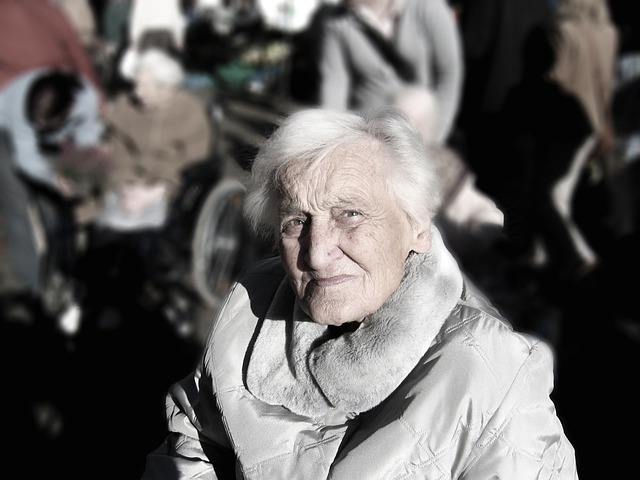Elderly Companion Services are vital for combating the negative effects of isolation on seniors by providing personalized companionship and practical assistance with daily tasks, thus enhancing their quality of life. These services not only reduce loneliness but also support independence and community connections. They offer activities tailored to individual interests, facilitate social interactions, encourage light physical exercise for health benefits, and assist with technology use to maintain remote relationships. By matching compatible companions with seniors based on their unique needs and preferences, these services help maintain a senior's autonomy and self-respect, enabling them to confidently age in place. The positive impact of such services is evident in the lives of many seniors, including Mrs. Jenkins, whose story exemplifies how companion services can transform the experience of aging by fostering a renewed sense of belonging and purpose. These services are instrumental in improving mental health, cognitive function, and overall well-being for the elderly population.
As we age, social interaction becomes increasingly vital for maintaining mental and emotional well-being. The elderly population, often facing physical limitations or the loss of loved ones, can find themselves isolated, a challenge with significant implications for health and happiness. Elderly companion services emerge as a beacon of hope, offering tailored engagement that addresses this silent epidemic. This article delves into the transformative power of these services, exploring their role in enhancing the lives of seniors. We will navigate through understanding the challenges of isolation, the benefits of companion care, selecting the ideal service, and highlighting activities and programs that reconnect our elderly with the world around them. Join us as we uncover success stories where compassionate care and social interaction have profoundly transformed lives, proving that no one should have to face solitude alone.
- Understanding the Challenges of Isolation in the Elderly Population
- The Role and Benefits of Companion Services for Seniors
- How to Choose the Right Companion Service for an Isolated Senior
- Activities and Programs Designed to Engage and Socialize Isolated Elders
- Success Stories: Compassionate Care and Social Interaction Transforming Lives
Understanding the Challenges of Isolation in the Elderly Population

The challenges of isolation in the elderly population are multifaceted, deeply impacting their mental and physical well-being. As individuals age, they often face the loss of peers due to mortality or relocation, which can lead to a diminished social circle. This seclusion can exacerbate pre-existing health conditions and increase the risk of developing new ones, such as depression and dementia. The lack of regular social interaction can also accelerate cognitive decline and reduce the immune system’s effectiveness, making elderly individuals more susceptible to illnesses. Elderly companion services emerge as a vital solution to these issues, offering companionship and engagement that is tailored to each senior’s needs and preferences. These services not only provide a consistent presence that can alleviate feelings of loneliness but also encourage seniors to maintain an active lifestyle, engage in meaningful conversations, and participate in community activities. This, in turn, can help preserve their independence and improve their quality of life, ensuring they remain connected with the world around them. By facilitating social connections, elderly companion services play a pivotal role in mitigating the risks associated with prolonged isolation, fostering a more enriching and supportive environment for seniors.
The Role and Benefits of Companion Services for Seniors

As seniors often face the challenge of isolation due to various factors such as the loss of peers, mobility issues, or living alone, elderly companion services emerge as a critical support system. These services are designed to provide not just company but also assistance with daily tasks, ensuring a higher quality of life for the elderly. The presence of a consistent and caring companion can significantly reduce feelings of loneliness and depression, fostering a sense of connection and belonging. Moreover, these companions are often trained to engage in meaningful conversations, encourage social activities, and even help with light exercise, which contributes to both mental and physical well-being. For seniors who may struggle with navigating digital platforms, companion services can also bridge the gap by facilitating access to technology and teaching them to stay connected with loved ones online. This personalized support not only enhances the daily life of seniors but also plays a pivotal role in maintaining their independence and dignity, allowing them to age in place with greater comfort and peace of mind.
How to Choose the Right Companion Service for an Isolated Senior

When selecting a companion service for an isolated senior, it’s crucial to consider the individual’s unique needs and preferences. Elderly companion services offer a range of support options, from social companionship to assistance with daily activities. A reputable service will conduct a thorough assessment to understand the senior’s situation, including their health status, lifestyle interests, and social goals. This personalized approach ensures that the companion matched is not only qualified but also compatible in terms of personality and interests. It’s equally important for the service to provide trained professionals who are empathetic, reliable, and capable of fostering a meaningful connection with the senior. Additionally, look for companion services that offer flexible scheduling to accommodate the senior’s routine and unexpected needs. The best services also prioritize safety and well-being, offering regular updates to families and ensuring that all companions undergo thorough background checks. By carefully choosing a companion service tailored to your loved one’s specific requirements, you can help them maintain an active social life and enhance their overall quality of life, reducing the feelings of isolation often experienced by seniors.
Activities and Programs Designed to Engage and Socialize Isolated Elders

Engaging isolated seniors is a multifaceted challenge that community programs and elderly companion services address through a variety of activities and initiatives. These services are tailored to foster social connections, improve mental health, and enhance the overall well-being of elders who may be experiencing loneliness due to age-related limitations or living in areas with fewer social opportunities. Programs such as group exercise classes, art workshops, and technology training sessions provide platforms for seniors to interact, share skills, and form bonds with peers. Elderly companion services often facilitate these events, ensuring a safe and supportive environment where participants can feel comfortable and looked after. Additionally, community-based activities like neighborhood potlucks, storytelling circles, and local outings offer opportunities for elders to engage with their neighbors and foster a sense of belonging and community involvement. These initiatives not only combat social isolation but also enrich the lives of seniors by connecting them with resources and individuals who value and support their contributions to society.
Success Stories: Compassionate Care and Social Interaction Transforming Lives

The transformative power of compassionate care and meaningful social interaction is particularly evident among isolated seniors. Elderly companion services have emerged as a beacon of hope, offering tailored support to address the unique challenges faced by this demographic. These services go beyond mere companionship; they provide a lifeline that connects older adults with empathetic individuals who engage them in activities that spark joy and stimulate cognitive function. The result is a marked improvement in mental health and an enhanced sense of belonging, as seniors find themselves part of a supportive community.
Stories of success abound in the realm of elderly companion services. One such narrative is that of Mrs. Jenkins, who, after the loss of her spouse and with limited mobility, became increasingly withdrawn. The introduction of a compassionate caregiver from a reputable service changed her trajectory. Through regular visits and shared activities, Mrs. Jenkins’ social circle expanded, her confidence grew, and she expressed a renewed zest for life. These services not only facilitate companionship but also empower seniors to maintain independence and actively participate in the broader community, thereby enriching their lives and fostering a more inclusive society.
The elderly population faces unique social challenges, often leading to isolation. This article has shed light on the critical nature of social interaction for seniors and the transformative impact of companion services, such as Elderly Companion Services. By exploring the benefits these services offer and providing a roadmap for selecting the most suitable option, we aim to empower families and caregivers to enhance the lives of isolated elders through meaningful engagement and social connection. The success stories highlighted in this piece underscore the positive outcomes that can arise from thoughtful companionship, demonstrating that even small interactions can have profound effects on well-being. It is clear that companion services are not just a necessity but a catalyst for improved quality of life for our seniors.






